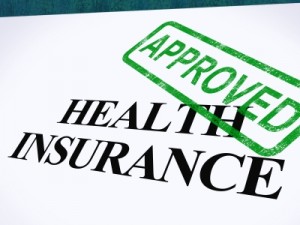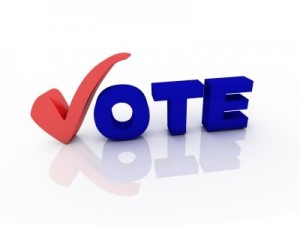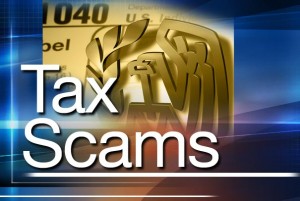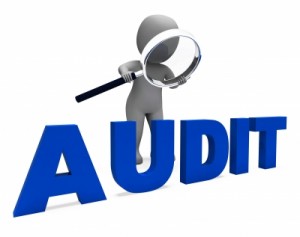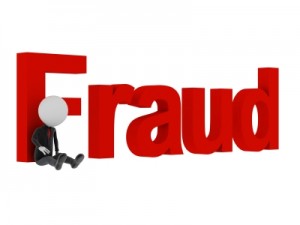 What does this really mean for you?
What does this really mean for you?
This is such a BIG topic and it’s not possible to answer every question here. I’m not your insurance specialist, I am your Income Tax Audit Specialist. Here is the introduction to this new tax wrinkle that may impact your current and future tax returns.
The healthcare coverage you currently carry for yourself and your family may be all you need. If you have what is called Minimum Essential Coverage, you probably don’t have to do anything.
But if you go without coverage for any part of the year, there are special rules that apply. If you don’t qualify for an exemption, you may need to make a special payment called an Individual Shared Responsibility Payment.
Who qualifies for an exemption? Those who…
- Do not have to file a tax return
- Do not have access to affordable health care
- Are a member of certain exempt groups
- Are suffering a hardship.
- Have other situations as shown at www.IRS.gov/aca
If you and your dependents do not have coverage and do not qualify for an exemption, then you may have to make a “shared responsibility” payment when you file your tax return.
This payment is either a percentage of your income or a flat dollar amount, whichever is greater. The payment is based on the number of months you go without coverage, or the number of months you are exempt.
If you get your health insurance coverage through the Health Insurance Marketplace, you may be eligible for the Premium Tax Credit. This can help people with moderate income more easily afford the coverage.
If you meet the following requirements, there is a Premium Tax Credit:
- Your income must be within certain limits
- You must not be eligible for other coverage through an employer or government plan
- You cannot be claimed as a dependent on someone else’s return
- You cannot file your tax return using the Married Filing Separate status
When you apply for coverage through the Marketplace, you can choose to get the credit now or you can choose to get the credit later. If you choose to get the credit now, you are asking the marketplace to pay some, or pay all of the estimated credit in advance, directly to your insurance company. That will help lower your out of pocket premium costs. If you choose to get the credit later, you take that credit on your income tax return.
If you choose the advance payment, to get the credit now, be sure to report changes in your income or changes in your family size. Report these changes when they happen to ensure you are getting the correct amount of advance credit. This is important, because getting too much or getting too little credit can affect your income tax return refund or balance due.
I still get my insurance from a private insurance company. There is a lot to learn about ObamaCare and income taxes. In next week’s article, I will address the time line for getting coverage now for next year.
 The end is near, the end of the tax year that is. We just ended the third quarter and are beginning the fourth quarter of this calendar year.
.
What does this “quarter” stuff have to do with you, the individual income taxpayer? If you filed an extension for your personal tax return, that return is due by October 15th.
.
Most individuals can file that personal tax return electronically. Once in a while there is something complicated that may require you to mail your tax return to the Internal Revenue Service Center, but those cases are rare. I highly recommend e-filing whenever possible, it cuts down on processing errors and you get confirmation that your return has been filed.
.
If you are in business for yourself, or have other income on which you have no withholding, you may pay estimated tax payments. The third quarter payment was due September 15th. If you missed that date, send that payment now to minimize late payment penalties when you file your tax return. The payment for the fourth quarter is not due until January 15th of this coming year. Of course, you can pay it early if you want to.
.
If you miss the due date for your tax return, whether individual or business, file that late return as soon as you can. If you file a late, or delinquent, tax return with taxes due, don’t be surprised when you get a bill for interest and maybe penalties. The government is the biggest business there is. They want you to file and pay on time. If you don’t they will look to collect more money from you.
.
Are you an employer? Do you have employees? The third quarter employment tax returns are due before the last day of October. You want to be sure to file those reports before the “witching” hour on Halloween. Don’t let the Tax Goblins come knocking on your door, that knocking would come in the form of a notice in the mail. If you fail to file a return to the IRS is expecting, they will ask you for it. If you fail to send them the money they are expecting, they will ask you for it and more.
.
Before you get busy with your fall and winter holidays, now is a good time to start organizing the papers you’ve been collecting all year for this upcoming tax season. How can I think of this already? It’s my business. You don’t have to think about it like I do, but I get phone calls all through the year, so I know once in a while someone else is thinking taxes. Is it deductible? Can I do this or that? I want you to stay out of tax trouble!
.
I started this blog with “The End is Near.” I don’t see an end to the IRS, they work 24/7 closed only for an occasional federal holiday. We file a tax return every year. I want you to pay only your lowest legal tax. File on time. Pay on time. Watch your calendar. Save your receipts. Let your tax advisor help you.
Welcome to the fourth quarter.
The end is near, the end of the tax year that is. We just ended the third quarter and are beginning the fourth quarter of this calendar year.
.
What does this “quarter” stuff have to do with you, the individual income taxpayer? If you filed an extension for your personal tax return, that return is due by October 15th.
.
Most individuals can file that personal tax return electronically. Once in a while there is something complicated that may require you to mail your tax return to the Internal Revenue Service Center, but those cases are rare. I highly recommend e-filing whenever possible, it cuts down on processing errors and you get confirmation that your return has been filed.
.
If you are in business for yourself, or have other income on which you have no withholding, you may pay estimated tax payments. The third quarter payment was due September 15th. If you missed that date, send that payment now to minimize late payment penalties when you file your tax return. The payment for the fourth quarter is not due until January 15th of this coming year. Of course, you can pay it early if you want to.
.
If you miss the due date for your tax return, whether individual or business, file that late return as soon as you can. If you file a late, or delinquent, tax return with taxes due, don’t be surprised when you get a bill for interest and maybe penalties. The government is the biggest business there is. They want you to file and pay on time. If you don’t they will look to collect more money from you.
.
Are you an employer? Do you have employees? The third quarter employment tax returns are due before the last day of October. You want to be sure to file those reports before the “witching” hour on Halloween. Don’t let the Tax Goblins come knocking on your door, that knocking would come in the form of a notice in the mail. If you fail to file a return to the IRS is expecting, they will ask you for it. If you fail to send them the money they are expecting, they will ask you for it and more.
.
Before you get busy with your fall and winter holidays, now is a good time to start organizing the papers you’ve been collecting all year for this upcoming tax season. How can I think of this already? It’s my business. You don’t have to think about it like I do, but I get phone calls all through the year, so I know once in a while someone else is thinking taxes. Is it deductible? Can I do this or that? I want you to stay out of tax trouble!
.
I started this blog with “The End is Near.” I don’t see an end to the IRS, they work 24/7 closed only for an occasional federal holiday. We file a tax return every year. I want you to pay only your lowest legal tax. File on time. Pay on time. Watch your calendar. Save your receipts. Let your tax advisor help you.
Welcome to the fourth quarter.  The end is near, the end of the tax year that is. We just ended the third quarter and are beginning the fourth quarter of this calendar year.
.
What does this “quarter” stuff have to do with you, the individual income taxpayer? If you filed an extension for your personal tax return, that return is due by October 15th.
.
Most individuals can file that personal tax return electronically. Once in a while there is something complicated that may require you to mail your tax return to the Internal Revenue Service Center, but those cases are rare. I highly recommend e-filing whenever possible, it cuts down on processing errors and you get confirmation that your return has been filed.
.
If you are in business for yourself, or have other income on which you have no withholding, you may pay estimated tax payments. The third quarter payment was due September 15th. If you missed that date, send that payment now to minimize late payment penalties when you file your tax return. The payment for the fourth quarter is not due until January 15th of this coming year. Of course, you can pay it early if you want to.
.
If you miss the due date for your tax return, whether individual or business, file that late return as soon as you can. If you file a late, or delinquent, tax return with taxes due, don’t be surprised when you get a bill for interest and maybe penalties. The government is the biggest business there is. They want you to file and pay on time. If you don’t they will look to collect more money from you.
.
Are you an employer? Do you have employees? The third quarter employment tax returns are due before the last day of October. You want to be sure to file those reports before the “witching” hour on Halloween. Don’t let the Tax Goblins come knocking on your door, that knocking would come in the form of a notice in the mail. If you fail to file a return to the IRS is expecting, they will ask you for it. If you fail to send them the money they are expecting, they will ask you for it and more.
.
Before you get busy with your fall and winter holidays, now is a good time to start organizing the papers you’ve been collecting all year for this upcoming tax season. How can I think of this already? It’s my business. You don’t have to think about it like I do, but I get phone calls all through the year, so I know once in a while someone else is thinking taxes. Is it deductible? Can I do this or that? I want you to stay out of tax trouble!
.
I started this blog with “The End is Near.” I don’t see an end to the IRS, they work 24/7 closed only for an occasional federal holiday. We file a tax return every year. I want you to pay only your lowest legal tax. File on time. Pay on time. Watch your calendar. Save your receipts. Let your tax advisor help you.
Welcome to the fourth quarter.
The end is near, the end of the tax year that is. We just ended the third quarter and are beginning the fourth quarter of this calendar year.
.
What does this “quarter” stuff have to do with you, the individual income taxpayer? If you filed an extension for your personal tax return, that return is due by October 15th.
.
Most individuals can file that personal tax return electronically. Once in a while there is something complicated that may require you to mail your tax return to the Internal Revenue Service Center, but those cases are rare. I highly recommend e-filing whenever possible, it cuts down on processing errors and you get confirmation that your return has been filed.
.
If you are in business for yourself, or have other income on which you have no withholding, you may pay estimated tax payments. The third quarter payment was due September 15th. If you missed that date, send that payment now to minimize late payment penalties when you file your tax return. The payment for the fourth quarter is not due until January 15th of this coming year. Of course, you can pay it early if you want to.
.
If you miss the due date for your tax return, whether individual or business, file that late return as soon as you can. If you file a late, or delinquent, tax return with taxes due, don’t be surprised when you get a bill for interest and maybe penalties. The government is the biggest business there is. They want you to file and pay on time. If you don’t they will look to collect more money from you.
.
Are you an employer? Do you have employees? The third quarter employment tax returns are due before the last day of October. You want to be sure to file those reports before the “witching” hour on Halloween. Don’t let the Tax Goblins come knocking on your door, that knocking would come in the form of a notice in the mail. If you fail to file a return to the IRS is expecting, they will ask you for it. If you fail to send them the money they are expecting, they will ask you for it and more.
.
Before you get busy with your fall and winter holidays, now is a good time to start organizing the papers you’ve been collecting all year for this upcoming tax season. How can I think of this already? It’s my business. You don’t have to think about it like I do, but I get phone calls all through the year, so I know once in a while someone else is thinking taxes. Is it deductible? Can I do this or that? I want you to stay out of tax trouble!
.
I started this blog with “The End is Near.” I don’t see an end to the IRS, they work 24/7 closed only for an occasional federal holiday. We file a tax return every year. I want you to pay only your lowest legal tax. File on time. Pay on time. Watch your calendar. Save your receipts. Let your tax advisor help you.
Welcome to the fourth quarter. 
